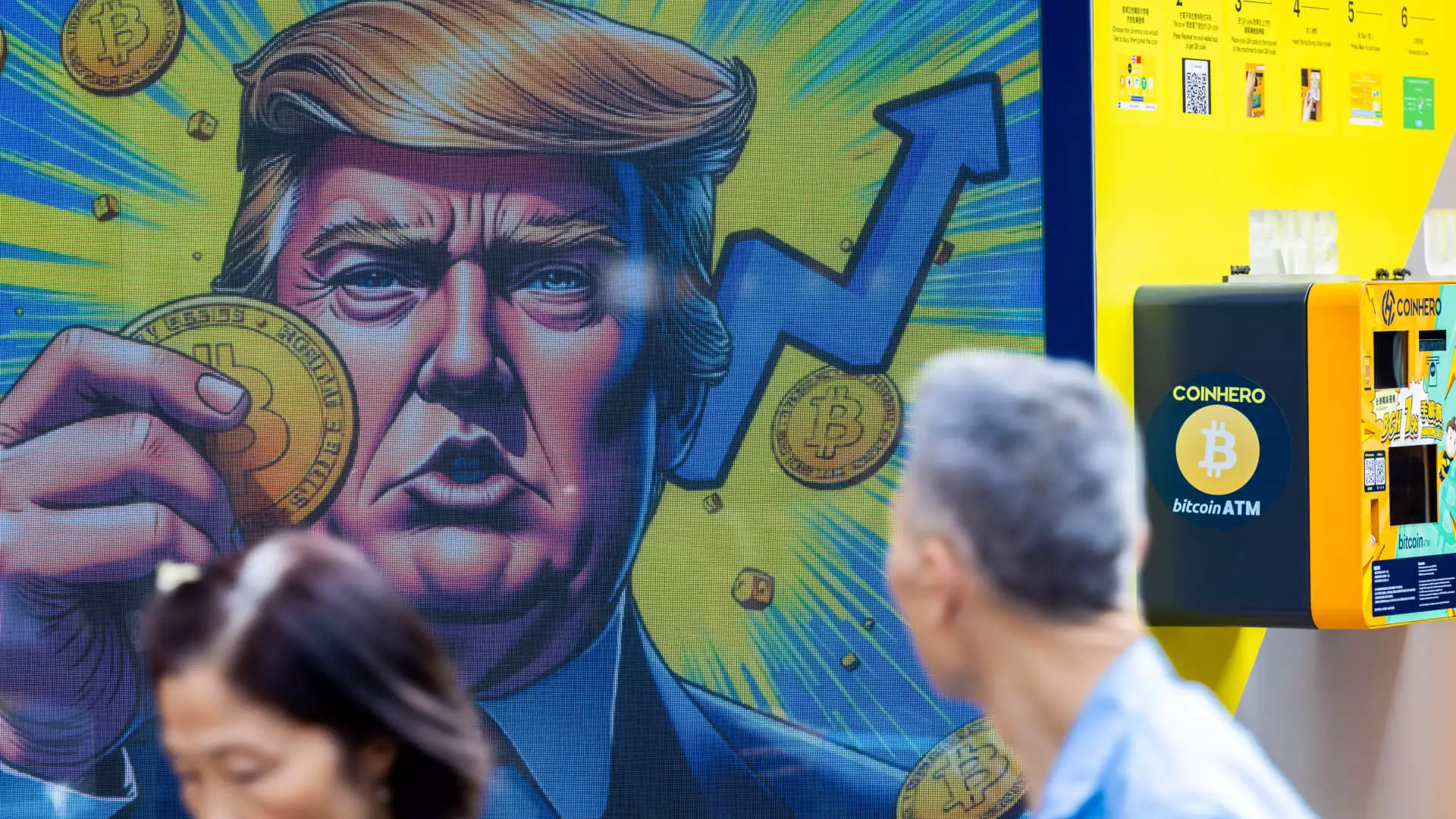In a stunning convergence of politics and blockchain technology, the $TRUMP cryptocurrency token has created a stir, recently pulling in close to $900,000 in trading fees over just two days, according to Chainalysis, a leading blockchain analytics firm. This frenzied trading activity was triggered by a promotional event promising top token holders an exclusive dinner with former President Donald Trump. Seemingly innocuous, this event lays bare the complex interplay of political influence, ethical boundaries, and modern financial systems, prompting a deeper examination of the implications of this intersection.
Meme Coins and Political Leverage
The $TRUMP token burst onto the cryptocurrency scene as a memecoin, a category of digital assets that gather value not from intrinsic utility but from social media hype and internet culture. While it shares company with renowned tokens like Dogecoin, the emergence of $TRUMP goes beyond mere speculation—it’s a unique financial instrument intricately linked to political clout and personal entrepreneurship. The promotion of a black-tie dinner rewards the top holders in a manner that many critics have deemed a disturbing monetization of presidential access.
The token reportedly witnessed an impressive market valuation of $2.7 billion after the dinner announcement, demonstrating just how social dynamics intertwine with financial markets in the crypto sphere. However, with roughly 80% of supply controlled by the Trump Organization and its affiliates, the situation raises alarm bells about the ethical ramifications of such concentrated power in a token associated with a public figure.
Critique and Controversies
Immediate backlash from political opponents underscores the contentious nature of Trump’s crypto endeavors. Senator Chris Murphy was quick to cast the President’s promotional strategy as “the most brazenly corrupt thing a president has ever done.” Critics like Murphy and Senators Adam Schiff and Elizabeth Warren are not merely voicing outrage for political theater; they are sounding the alarm on what they view as an erosion of ethical standards.
Delaney Marsco from the Campaign Legal Center highlights a significant aspect of this situation: the absence of criminal conflict of interest statutes applicable to the President. This legal loophole has allowed Trump to capitalize on opportunities that, traditionally, would be viewed as ethically questionable by any other public official. The very fabric of democratic norms appears to be at risk as the lines between private profit and public service blur.
The Role of Transparency in the Crypto Landscape
The transactional opacity of the $TRUMP token presents an additional layer of complication. The leaderboard showcasing top token holders obscures actual identities, raising questions about accountability and transparency. How can potential investors—who might unwittingly be supporting nefarious players—make informed decisions in such a murky landscape? The fact that some $TRUMP investors are linked to foreign exchanges banned in the U.S. amplifies concerns, exposing potential vulnerabilities to national security.
This lack of clarity is underscored by Molly White, an independent crypto researcher, who points out that anonymity in transactions could facilitate ethically ambiguous activities. In the realm of blockchain, where trust and transparency are foundational, the opacity surrounding the $TRUMP token stands in stark contrast to those values.
Economic Motivation or Politically Charged Endeavors?
The emergence of $TRUMP raises questions about the motivations behind his embrace of cryptocurrencies. Previously skeptical, Trump’s pivot in 2024 towards championing digital assets denotes a significant turnaround in his political strategy, perhaps influenced by financial contributions from crypto stakeholders during his campaign. Rather than advocating for discerning regulations, Trump positions himself as a defender of crypto innovation, appealing to the sentiments of an industry eager for less oversight.
However, the dual role of being a politician and a cryptocurrency promoter may also raise suspicions about manipulating policy to enhance personal wealth. The $TRUMP token, lacking tangible products or services, seems less like an innovative financial solution and more like a vehicle for self-enrichment. This raises an existential question about authenticity in political platforms; is it about service, or about capitalizing on an open market?
The Future: Navigating Regulatory Waters
The future of Trump’s cryptocurrency ventures is poised at a crossroads. As regulatory scrutiny looms ever closer, the culmination of ethical lapses, opaque trading practices, and a politically charged atmosphere results in a precarious situation. The fact that his projects generate substantial revenue for Trump and his associates while the average consumer is barred from profiting raises essential queries about fairness, integrity, and governance in the cryptosphere.
In this complex scenario, the stakes are high—not only for Trump and his investors but for the very democratic ideals that underpin American society. As cryptocurrency evolves, it will be essential to confront these challenges with a mindset oriented towards transparency, accountability, and ethical obligations in governance. The $TRUMP saga serves as a cautionary tale for the future of political engagement and financial innovation in an increasingly digital world.


Leave a Reply